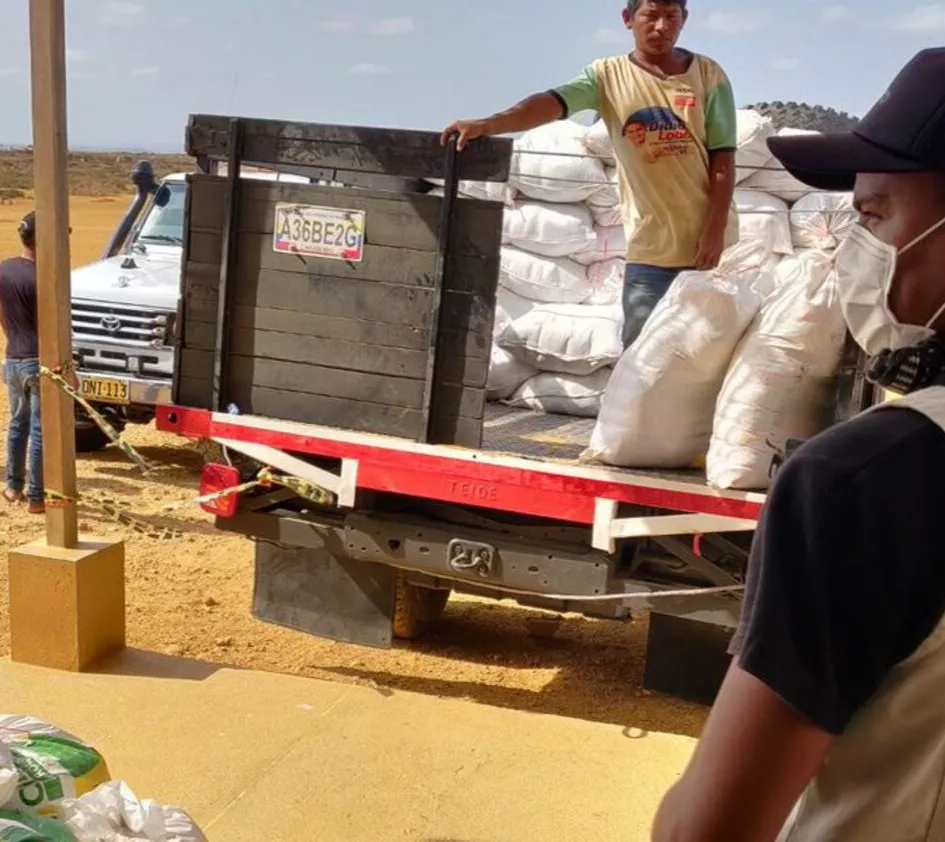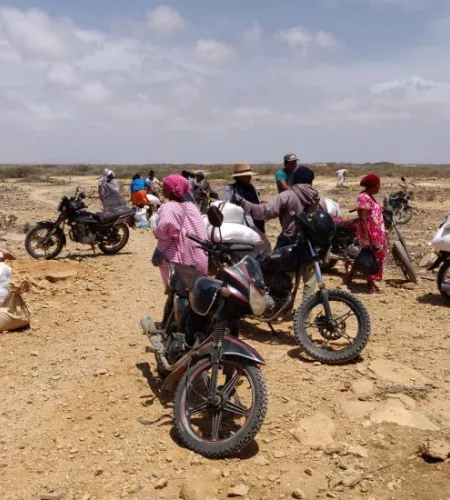ZOA prefers to provide support in the form of multi-purpose cash or vouchers, because it preserves peoples dignity to choose and a sense of normalcy in the uncertain times of the coronavirus pandemic. However, for 150 Indigenous Wayuu families living in the remote deserts in Northern Uribia, ZOA had to take a different approach. On May 20 and 21, 2020, ZOA travelled 7 hours north and distributed food kits to vulnerable households who faced food insecurity due to the coronavirus for over two days.

Coronavirus in Colombia: food distributions resumed
In the northern-most point of South America, lies the municipality of Uribia, Colombia. It is here that ZOA is preparing for the second round of multi-purpose voucher distributions.
ZOA responds
Helping in Colombia
800 families will receive a voucher worth 250,000 Colombian pesos (approximately 61 euro), that they can exchange for food and hygiene items in one of the 9 vendors in the town of Uribia.
Communities did not received any support
The Wayuu are the largest of the 87 different indigenous people groups in Colombia. The communities of Taroa, Utaleo, Bahia Hondita and Punta Gallinas, earn the majority of their income through tourism in the rugged, but beautiful terrain. Since nationwide mandatory quarantine was implemented on March 24, 2020, tourism has stopped completely, as well as their ability to earn any income.
Due to their location, these communities have not been receiving any support, and at the request of the local government and the United Nations Development Program (UNDP), ZOA Colombia converted 150 vouchers into in-kind food kits, to be distributed in these communities.

Minimizing risks
In mid-June ZOA will provide the second of three monthly food kits to this community. By delivering kits to this isolated northern tip of the continent, ZOA is removing barriers to participation for vulnerable families, and minimizing their risks of the coronavirus transmission by minimizing the communities exposure to the virus.
Click here to read more about ZOA’s response to the coronavirus pandemic.
